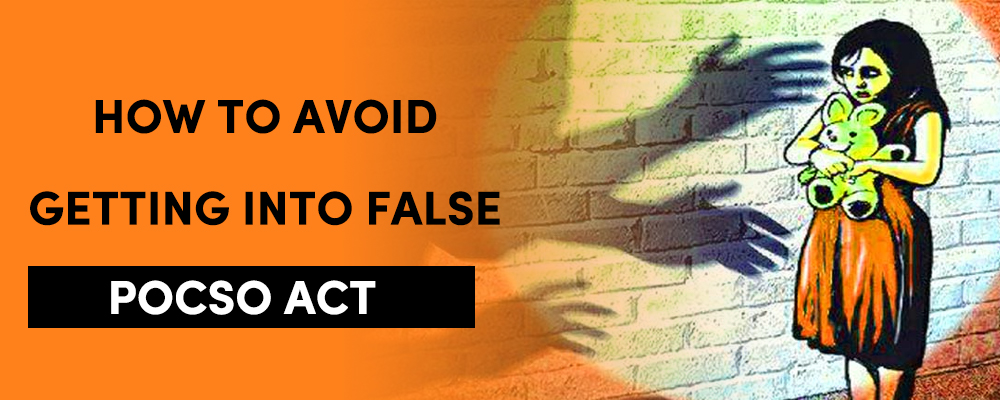In addition to providing proper legal machinery by establishing special courts for the trial of such charges and matters connected to child sexual abuse crimes, the goal of POCSO – Protection of Children from Sexual Offences Act, 2018 was to defend children from sexual assault, sexual harassment, and pornography violations. The formation of the POCSO ACT was later motivated by the inadequacies of the Indian Penal Code and the absence of any strict regulations for proactively addressing and combating terrible crimes like sexual exploitation and abuse of minors. The POCSO Act is gender-neutral legislation.
It is important to know that under the POCSO Act, penetrative sexual assault and aggravated penetrative sexual assault have been defined. Such acts have been declared to be an offence even if the act is done with a boy/girl who is a minor with his/her consent. This is because a minor is not considered capable of giving valid consent. The natural guardian of the minor acts on their behalf. While Section 7 of the Act defines sexual assault, Section 8 prescribes punishment for sexual assault. Sexual assault is defined as any act that involves physical contact without penetration and is done with the aim to gratify one’s sexual desires. Sexual assault includes touching a kid’s vagina, penis, anus, or breast, or forcing a child to do so. Thus, the intention is an important ingredient to constitute this crime. Whoever commits such an act can be punished with imprisonment which shall not be less than 3 years and can extend up to five years and with a fine. A very famous case emerged in this regard recently where Justice Pushpa Ganediwala (Bombay High Court) observed that touching a youngster without making “skin-to-skin contact” does not constitute sexual assault under POCSO Act. The Supreme Court had set aside this ruling of the Bombay High Court. A number of legal regulations impose obligations on the populace to report any suspicions or awareness they may have relating to the occurrence of such an offence. It should be underlined that providing such information in accordance with Section 19 in good faith is exempt from all liability, whether civil or criminal.
Need A Legal Advice
The internet is not a lawyer and neither are you. Talk to a real lawyer about your legal issue

False Allegations Under POCSO Act:
However, it is also necessary to highlight that the legislators took into account the potential for fabricated allegations to be made and included that in the POCSO Act. S. 22 creates the possibility of punishment for fraudulent complaints or incorrect information.
In this case, the minor child is exempted. However, any other complainant making a false report solely with the goal to humiliate, extort, threaten, or defame someone is punishable by up to six months in jail, a fine, or both. False complaints or information made against a kid that is known to be untrue can result in up to a year in jail, a fine, or both, depending on who is responsible. The court in Samsher Singh Verma v. the State of Haryana took into account the likelihood that the allegation might be untrue and permitted the accused to present evidence in the form of a recorded phone call that might disclose that the allegation had been brought up merely to subdue the accused in a civil dispute. Another instance of a false complaint being filed against a school van driver was in the case of Ramlal N.R. v. State of Kerala and Ors, where the facts themselves and the testimony of the eyewitnesses appeared to expose the dishonesty of the claim. When the Court questioned the victim about the validity of her complaint, the victim admitted that a police officer had advised her to change her story since her previous claim—that the accused had struck her hand with his shoulder—would not have resulted in a penalty. To deal with these cases the courts are required to conduct extensive investigations into the facts, circumstances, and any relevant information pertaining to the alleged incident and the relationship between the parties involved.
It can be observed that on many occasions the court has accepted the evidence which has proved that the defendant is not guilty of committing any offence. Such evidence can be in the form of text messages or recorded conversations and also the testimony of the eyewitnesses. Any conduct on the part of the natural guardian which shows that they had a negative intention of filing a false case against the accused can also be used as a piece of evidence. It should be noted that circumstantial evidence can also prove to be helpful in defending such cases. In order to defend the case, a copy of the FIR must be obtained from the police station with the help of a lawyer. Even though any offence under the POCSO Act is a non-bailable offence, bail can be sought from the court by providing evidence to build a prima facie case that the information given which resulted in the arrest might be false.





 Talk to a Lawyer
Talk to a Lawyer